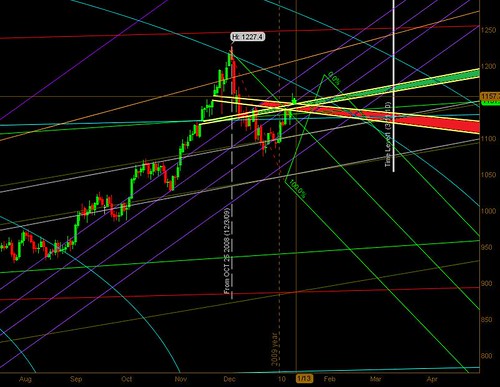Ever ask yourself, “what is a hedge fund manager?” If you follow the news, you might stumble upon news surrounding the latest hedge fund investments, stock picks and quotes, and we’re willing to be that it’s made you consider the profession at least once or twice. With an average hedge fund manager salary typically north of $2 million depending on the year, it’s very easy to make this consideration.
With that in mind, what better way to learn more about the hedge fund field than by going through a few tips? We’ve already discussed how to be a hedge fund manager, and we’re going to be even more specific here.
There are an estimated 8,000 or so hedge funds actively in existence today, but only a small percentage–about 5%–manage to become truly elite, and we at Insider Monkey follow that bunch. Mega-investors like Stephen Mandel, Chase Coleman, or Andreas Halvorsen became great hedge fund managers due to their mentor, Julian Robertson, a former hedge fund manager. It’s no coincidence that many of these so-called Tiger Cubs reached some of the top positions in the smart money’s world, which also shows that it is possible to learn to become a great hedge fund manager.
While they say “money cannot buy happiness,” it surely can make you feel good; let’s take a look at this field in further detail.
Step 1: Make the right decision

Photo Credit: faul
Being a hedge fund manager is not going to be a piece of cake, and learning the tricks of the trade will be hard. So before you actually get started, make sure you want to become a hedge fund manager and face all of the emotional ups-and-downs the financial world will throw at you. Learning to manage these emotions is key, and it requires discipline, hard work, and determination.
Still wondering just what is a hedge fund manager, and how to be one? Continue reading to find out:
Step 2: Learn from the masters

Photo Credit: RLHyde
If you do decide that you want to become a hedge fund manager, study the field you are going to join. You can subscribe to hedge fund news and reports, study their activity and the latest moves. Also you can pick some great investors to emulate, and learn how they reached their position, long or short. Lucky for you, there’s a lot of literature and information available for free, so spend some time learning how this whole mechanism works.
Step 3: Enter the field

Photo Credit: thomasbrightbill
Now that you know how the investment world works, you should enter the field. You cannot instantly become a hedge fund manager, so consider working for a hedge fund in order to get some more knowledge. Many talented managers started as traders or analysts for a hedge fund (remember Tiger Cubs?). Don’t give up your job for this. You can start with a part-time internship and work up your way through and get hired on a full-time basis. Also, this step is necessary for the next one.
Step 4: Develop relationships
 Photo Credit: buddawiggi
Photo Credit: buddawiggi
Relationships are very important in the investment world. You might need seed money for starting your own fund, you might need advice, or you just might need to get well-known. That is why, you should build up relationships with your future peers, because later they will definitely come in handy.
Step 5: Write your business plan

Photo Credit: plantoo47
Now that you think you can do something on your own, it’s time to write a business plan. This will help you figure out some important issues, like how much money will you need to start, or how many employees will you need. Also at this step, you should take care of risk management, because it will show you what might happen if you do something wrong. Remember that a poor risk management strategy can have very bad consequences for you.
Step 6: Take care of the marketing plan

Photo Credit: kenteegardin
A hedge fund is first of all a business, and like all businesses it is based on sales. A good marketing plan will help you not to fail at the beginning. You should consider where you will get money to start your hedge fund. Come up with a name, a logo, a presentation which you will use to show your future investors why they should give you money. Also take care of the smaller issues like the letterhead or business cards.
Step 7: Hire a legal counsel

Photo Credit: troismarteaux
Hiring a good hedge fund lawyer might cost you a lot, but it will pay off in the end. A hedge fund lawyer, aside from helping you settle some legal matters in which you are most likely not an expert, might be helpful when it comes to building relationships.
Step 8: Find a prime brokerage

You won’t be able to start a hedge fund without a prime brokerage. It will help you work in the business and can help you find the initial capital (seed money). Remember that the activity of your future hedge fund depends on the brokerage you choose, so take your time, and meet with several companies before making the right decision.
Step 9: Pick your focus

Photo Credit: Ponzi_Unit
There are thousands of various investment opportunities out there, so you will have to come up with an investment strategy as well as figure out in what you would like to invest in as well as frequency of portfolio turnover, in order to have a crack at generating any alpha. Some hedge fund managers, for example, focus their attention on a specific industry like energy, or oil and gas, while others look at macroeconomic events or price arbitrage methods.
Step 10: Find seed money

Photo Credit: 401(K) 2013
If you successfully accomplished the previous steps, finding seed money should be easy. You already must have some relationships with other managers, and your prime brokerage or legal counsel can also help you in this matter. If you get the money, and your business plan and marketing plan are fine, you can start trading.
With that being said, a hedge fund-centered life isn’t for the faint of heart, and any serious venture into this arena should start with careful study, at places such as Insider Monkey’s Hedge Fund Education Center or our Billionaire Hedge Fund Index on MarketWatch.




